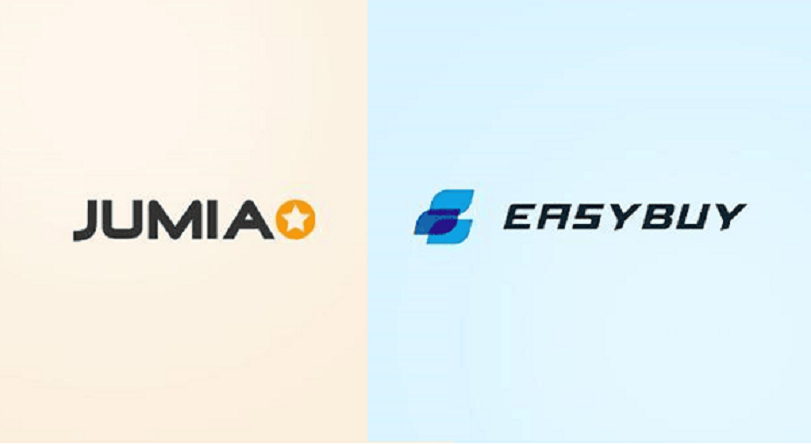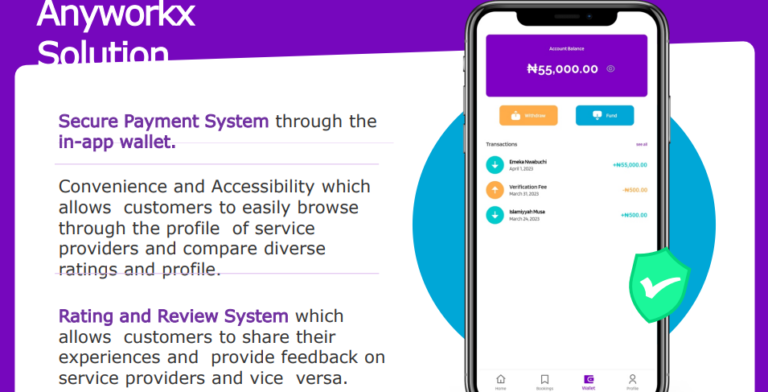Economy
Africa’s e-Commerce Market is 5% of Total Retail—Anammah

By Aduragbemi Omiyale
The chairwoman of Jumia Nigeria, Ms Juliet Anammah, has said Africa’s e-commerce market has remained largely untapped, accounting for just 5 per cent of the total retail.
However, she expressed optimism that her organisation will work hard to close the gap by expanding footprints in its current verticals.
Speaking in a recent interview with Darius Teeter of Stanford Seed, she said more tech companies are trooping into the African market, thus opening up more possibilities in the e-commerce space.
Between 2014 and 2018, the number of online shoppers on the African continent was said to have increased annually, at an average growth rate of 18 per cent, higher than the global average of 12 per cent.
Statista puts the number of digital buyers in Africa at 281 million in 2020, estimating an increase to 520 million by 2025.
However, the current number of active users on Africa’s largest e-commerce platform stands at 7 million, thus showing the huge market gap yet to be explored on the continent.
“All said and done, we are the largest e-commerce platform on the continent, and you are on the continent where e-commerce is still 2-5 per cent of total retail, which is a huge upside.
“This is a huge area to focus on rather than look into new verticals. Now we are deepening our footprints within the countries we are in, and we are for now concentrating on those 11 countries,” she said.
Given the vast untapped market, e-commerce brands deploy innovative ways to explore the unique African business terrain. Jumia has the JForce network that helps push online shopping services in rural communities. The company recently expanded its footprints by taking hubs and pickup stations closer to customers in different communities across Nigeria.
On Jumia’s initiatives to further deepen market reach and acceptance, Ms Anammah said, “We are working to bring more sellers and brands to the platform.
“Another area we want to focus on is the shift from high-value products to everyday products, essentials and consumables. That’s where we are deepening our presence.
“We already saw sales of consumables growing on our platform. Last year we saw that sugar and pears had record sales in some countries, unlike before where it might have been an electronic product.”
Touching on the impact of COVID-19 on e-commerce on the continent, she stated that the effect of the pandemic on sales was more of a blip, as the continent was already on a trajectory.
“I think the pandemic was a blip in Africa. COVID-19 was not a determinant in the growth of e-commerce on the continent; rather, e-commerce had been on a trajectory given that you have over 500 million internet users and Africa is a mobile-first environment.
“So, it’s almost like Africans have been hungry to do more with their mobile phones, and e-commerce happens to be one of those areas.
“If there’s an area I think there was more awareness of the potential of e-commerce was in the public policy and agency where they discovered that this is something that can be leveraged for job creation and economic development as a whole,” she added.
Ms Anammah noted that governments and agencies in Africa have been supportive of e-commerce and “are doing their best to see that companies like us are operating well.”
Economy
LIRS Urges Taxpayers to File Annual Returns Ahead of Deadline

By Modupe Gbadeyanka
All individual taxpayers in Lagos State have been advised to file their annual tax returns ahead of the March 31 deadline.
This appeal was made by the Lagos State Internal Revenue Service (LIRS) in a statement issued by its Head of Corporate Communications, Mrs Monsurat Amasa-Oyelude.
The notice quoted the chairman of LIRS, Mr Ayodele Subair, as saying that timely filing remains both a constitutional and statutory obligation as well as a civic responsibility.
The statutory filing requirement applies to all taxable persons, including self-employed individuals, business owners, professionals, persons in the informal sector, and employees under the Pay-As-You-Earn (PAYE) scheme.
In accordance with Section 24(f) of the 1999 Constitution of the Federal Republic of Nigeria, Sections 13 &14(3) of the Nigeria Tax Administration Act 2025 (NTAA), every individual with taxable income is required to submit a true and correct return of total income from all sources for the preceding year (January 1 to December 31, 2025) within 90 days of the commencement of a new assessment year.
“Filing of annual tax returns is not optional. It is a legal requirement under the Nigeria Tax Administration Act 2025. We encourage all Lagos residents earning taxable income to file early and accurately.
“Early and accurate filing not only ensures full adherence with statutory requirements, but supports effective monitoring and forecasting, which are critical to Lagos State’s fiscal planning and long-term sustainability,” Mr Subair stated.
He further noted that failure to file returns by the statutory deadline attracts administrative penalties, interest, and other enforcement measures as prescribed by law.
To enhance convenience and efficiency, all individual tax returns must be submitted electronically via the LIRS eTax portal at https://etax.lirs.net. The platform enables taxpayers to register, file returns, upload supporting documents, and manage their tax profiles securely from anywhere.
In keeping with global best practices, Mr Subair reiterated that LIRS continues to prioritise digital tax administration and taxpayer support services. He affirmed that the LIRS eTax platform is secure and accessible worldwide. Taxpayers requiring assistance may visit any of the LIRS offices or other channels.
Economy
NNPC Targets 230% LPG Supply Surge to 5MTPA Under Gas Master Plan 2026

By Adedapo Adesanya
The Nigerian National Petroleum Company (NNPC) Limited has said the Gas Master Plan 2026 targets over 230 per cent scale-up of Liquefied Petroleum Gas (LPG) supply from 1.5 million tonnes per annum (MTPA) to 5 MTPA this year.
The Executive Vice President for Gas, Power and New Energy at NNPC, Mr Olalekan Ogunleye, unveiled the strategic direction of the NNPC Gas Master Plan 2026, outlining an aggressive expansion drive to position Nigeria as a regional and global gas powerhouse.
Mr Ogunleye delivered the keynote address at the 2026 Lagos Energy Week, organised by the Society of Petroleum Engineers (SPE), where he detailed plans to accelerate gas development, deepen infrastructure and significantly scale domestic supply.
According to him, the Gas Master Plan targets a scale-up of LPG or cooking gas supply from 1.5 MTPA to 5 MTPA, alongside expanded feedstock for Mini-LNG and Compressed Natural Gas (CNG) projects.
“The NNPC Gas Master Plan 2026 is a blueprint to unlock Nigeria’s vast gas potential and translate it into tangible economic value,” Mr Ogunleye said.
He added that the strategy would also drive exponential growth in Gas-Based Industries, GBIs, strengthening local manufacturing, fertiliser production and power generation.
“Our renewed focus is on turning abundant gas resources into inclusive economic growth and improved quality of life for Nigerians,” he stated.
Mr Ogunleye said the plan aligns with the Federal Government’s Decade of Gas initiative and the presidential production targets of achieving 10 billion cubic feet per day by 2027 and 12 BCF/D by 2030.
Industry leaders at the event, including executives from Chevron Corporation, Esso Exploration and Production Nigeria Limited, Midwestern Oil and Gas Company Limited, Abuja Gas Processing Company and Shell Nigeria Gas, commended the plan and praised Ogunleye’s leadership in driving implementation excellence.
The new blueprint signals NNPC’s determination to anchor Nigeria’s energy transition on gas, leveraging infrastructure expansion and domestic utilisation to consolidate the country’s status as Africa’s largest gas reserve holder.
Economy
Shettima Blames CBN’s FX Intervention for Naira Depreciation

By Adedapo Adesanya
Vice President Kashim Shettima has attributed the Naira’s recent depreciation to the intervention of the Central Bank of Nigeria (CBN) in the foreign exchange (FX) market, stating that the currency could have strengthened to around N1,000 per Dollar within weeks if the apex bank had allowed market forces to prevail.
The local currency has dropped over N8.37 on the Dollar in the last week, as it closed at N1,355.37/$1 on Tuesday at the Nigerian Autonomous Foreign Exchange Market (NAFEM), after it went on a spree late last month and into the early weeks of February.
However, speaking on Tuesday at the Progressive Governors’ Forum (PGF), Renewed Hope Ambassadors Strategic Summit in Abuja, the Nigerian VP said the intervention was to ensure stability.
“In fact, if not for the interventions by the Central Bank of Nigeria yesterday, the 1,000 Naira to a Dollar we are going to attain in weeks, not in months. But for the purpose of market stability, the CBN generously intervened yesterday.
“So, for some of my friends, especially one of our party leaders who takes delight in stockpiling dollars, it is a wake-up call,” the vice president said.
He was alluding to CBN buying US Dollars from the market to slow down the rapid rise of the Naira.
Latest information showed that last week, the apex bank bought about $189.80 million to reduce excess Dollar supply and control how fast the Naira was gaining value.
The move was aimed at preventing foreign portfolio investors from exiting Nigeria’s fixed-income market, as large-scale sell-offs could heighten demand for US Dollars, intensify capital flight, and exert further pressure on the exchange rate.
Amid this, speaking after the 304th meeting of the monetary policy committee (MPC) of the CBN on Tuesday, Governor of the central bank, Mr Yemi Cardoso, said Nigeria’s gross external reserves have risen to $50.45 billion, the highest level in 13 years.
This strengthens the country’s foreign exchange buffers, enhances the apex bank’s capacity to defend the Naira when needed, and boosts investor confidence in the stability of the Nigerian FX market.
-

 Feature/OPED6 years ago
Feature/OPED6 years agoDavos was Different this year
-
Travel/Tourism10 years ago
Lagos Seals Western Lodge Hotel In Ikorodu
-

 Showbiz3 years ago
Showbiz3 years agoEstranged Lover Releases Videos of Empress Njamah Bathing
-

 Banking8 years ago
Banking8 years agoSort Codes of GTBank Branches in Nigeria
-

 Economy3 years ago
Economy3 years agoSubsidy Removal: CNG at N130 Per Litre Cheaper Than Petrol—IPMAN
-

 Banking3 years ago
Banking3 years agoSort Codes of UBA Branches in Nigeria
-

 Banking3 years ago
Banking3 years agoFirst Bank Announces Planned Downtime
-

 Sports3 years ago
Sports3 years agoHighest Paid Nigerian Footballer – How Much Do Nigerian Footballers Earn




















